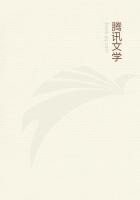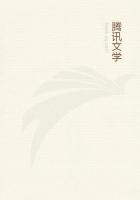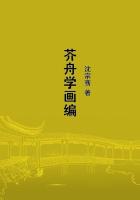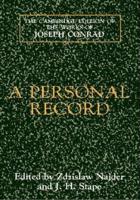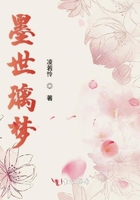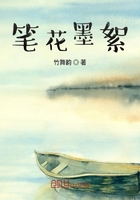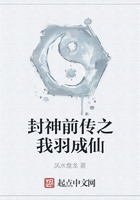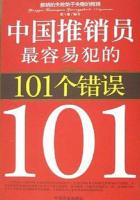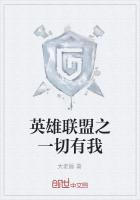Gentlemen and ladies, that sit by the fire, Put your hand in your pocket, 'tis all we desire;Put your hand in your pocket, and pull out your purse, And give us a trifle, - you'll not be much worse.
HERE FOLLOWS A DANCE, AND THIS IS GENERALLY SUCCEEDED BY A DIALOGUEOF AN ad libitum CHARACTER, WHICH VARIES IN DIFFERENT DISTRICTS, BEING SOMETIMES SIMILAR TO THE ONE PERFORMED BY THE SWORD-DANCERS.
Ballad: GLOUCESTERSHIRE WASSAILERS' SONG.
[IT is still customary in many parts of England to hand round the wassail, or health-bowl, on New-Year's Eve. The custom is supposed to be of Saxon origin, and to be derived from one of the observances of the Feast of Yule. The tune of this song is given in POPULAR MUSIC. It is a universal favourite in Gloucestershire, particularly in the neighbourhood of 'Stair on the wold, Where the winds blow cold,'
as the old rhyme says.]
WASSAIL! wassail! all over the town, Our toast it is white, and our ale it is brown;Our bowl is made of a maplin tree;
We be good fellows all; - I drink to thee.
Here's to our horse, and to his right ear, God send our measter a happy new year:
A happy new year as e'er he did see, -
With my wassailing bowl I drink to thee.
Here's to our mare, and to her right eye, God send our mistress a good Christmas pie;A good Christmas pie as e'er I did see, -With my wassailing bowl I drink to thee.
Here's to our cow, and to her long tail, God send our measter us never may fail Of a cup of good beer: I pray you draw near, And our jolly wassail it's then you shall hear.
Be here any maids? I suppose here be some;Sure they will not let young men stand on the cold stone!
Sing hey O, maids! come trole back the pin, And the fairest maid in the house let us all in.
Come, butler, come, bring us a bowl of the best;I hope your soul in heaven will rest;
But if you do bring us a bowl of the small, Then down fall butler, and bowl and all.
Ballad: THE MUMMERS' SONG; OR, THE POOR OLD HORSE.
As sung by the Mummers in the Neighbourhood of Richmond, Yorkshire, at the merrie time of Christmas.
[THE rustic actor who sings the following song is dressed as an old horse, and at the end of every verse the jaws are snapped in chorus. It is a very old composition, and is now printed for the first time. The 'old horse' is, probably, of Scandinavian origin, - a reminiscence of Odin's Sleipnor.]
YOU gentlemen and sportsmen, And men of courage bold, All you that's got a good horse, Take care of him when he is old;Then put him in your stable, And keep him there so warm;Give him good corn and hay, Pray let him take no harm.
Poor old horse! poor old horse!
Once I had my clothing Of linsey-woolsey fine, My tail and mane of length, And my body it did shine;But now I'm growing old, And my nature does decay, My master frowns upon me, These words I heard him say, -Poor old horse! poor old horse!
These pretty little shoulders, That once were plump and round, They are decayed and rotten, -I'm afraid they are not sound.
Likewise these little nimble legs, That have run many miles, Over hedges, over ditches, Over valleys, gates, and stiles.
Poor old horse! poor old horse!
I used to be kept On the best corn and hay That in fields could be grown, Or in any meadows gay;But now, alas! it's not so, -
There's no such food at all!
I'm forced to nip the short grass That grows beneath your wall.
Poor old horse! poor old horse!
I used to be kept up All in a stable warm, To keep my tender body From any cold or harm;But now I'm turned out In the open fields to go, To face all kinds of weather, The wind, cold, frost, and snow.
Poor old horse! poor old horse!
My hide unto the huntsman So freely I would give, My body to the hounds, For I'd rather die than live:
So shoot him, whip him, strip him, To the huntsman let him go;For he's neither fit to ride upon, Nor in any team to draw.
Poor old horse! you must die!
Ballad: FRAGMENT OF THE HAGMENA SONG.
As sung at Richmond, Yorkshire, on the eve of the New Year, by the Corporation Pinder.
[THE custom of singing Hagmena songs is observed in different parts of both England and Scotland. The origin of the term is a matter of dispute. Some derive it from 'au guy l'an neuf,' i.e., TO THEMISLETOE THIS NEW YEAR, and a French Hagmena song still in use seems to give some authority to such a derivation; others, dissatisfied with a heathen source, find the term to be a corruption of [Greek text which cannot be reproduced], i.e., THEHOLY MONTH. The Hagmena songs are sometimes sung on Christmas Eve and a few of the preceding nights, and sometimes, as at Richmond, on the eve of the new year. For further information the reader is referred to Brand's POPULAR ANTIQUITIES, vol. i. 247-8, Sir H.
Ellis's edit. 1842.]
TO-NIGHT it is the New-year's night, to-morrow is the day, And we are come for our right, and for our ray, As we used to do in old King Henry's day.
Sing, fellows, sing, Hagman-heigh.
If you go to the bacon-flick, cut me a good bit;Cut, cut and low, beware of your maw;
Cut, cut and round, beware of your thumb, That me and my merry men may have some, Sing, fellows, sing, Hagman-heigh.
If you go to the black-ark, bring me X mark;Ten mark, ten pound, throw it down upon the ground, That me and my merry men may have some.
Sing, fellows, sing, Hagman-heigh.
Ballad: THE GREENSIDE WAKES SONG.
[THE wakes, feasts, or tides of the North of England, were originally religious festivals in honour of the saints to whom the parish churches were dedicated. But now-a-days, even in Catholic Lancashire, all traces of their pristine character have departed, and the hymns and prayers by which their observance was once hallowed have given place to dancing and merry-******. At Greenside, near Manchester, during the wakes, two persons, dressed in a grotesque manner, the one a male, the other a female, appear in the village on horseback, with spinning-wheels before them; and the following is the dialogue, or song, which they sing on these occasions.]
''TIS Greenside wakes, we've come to the town To show you some sport of great renown;And if my old wife will let me begin, I'll show you how fast and how well I can spin.

